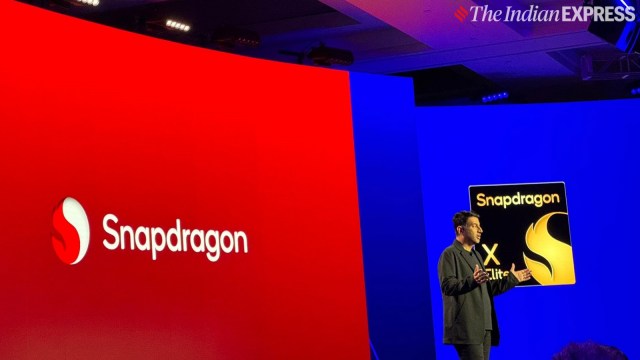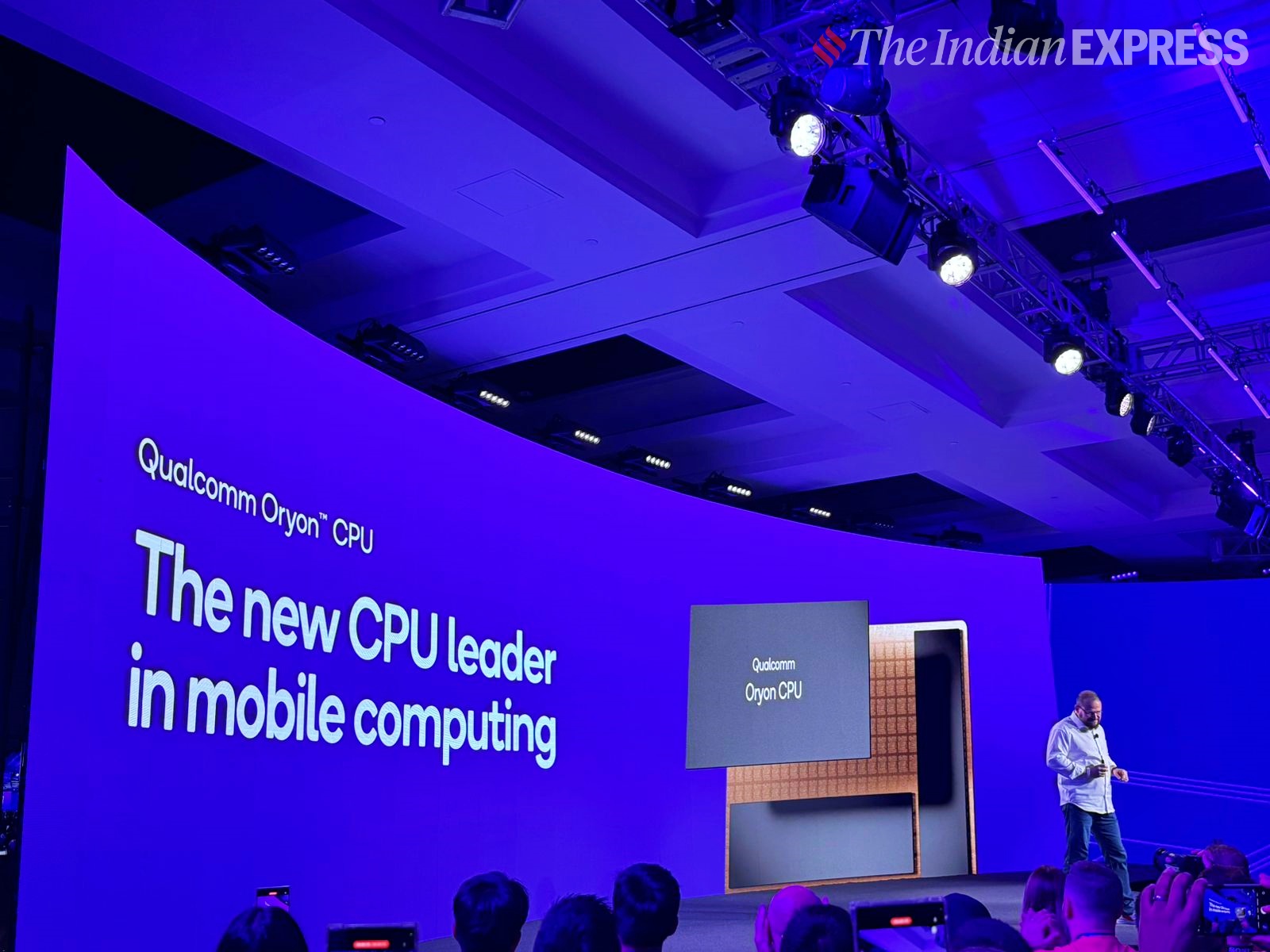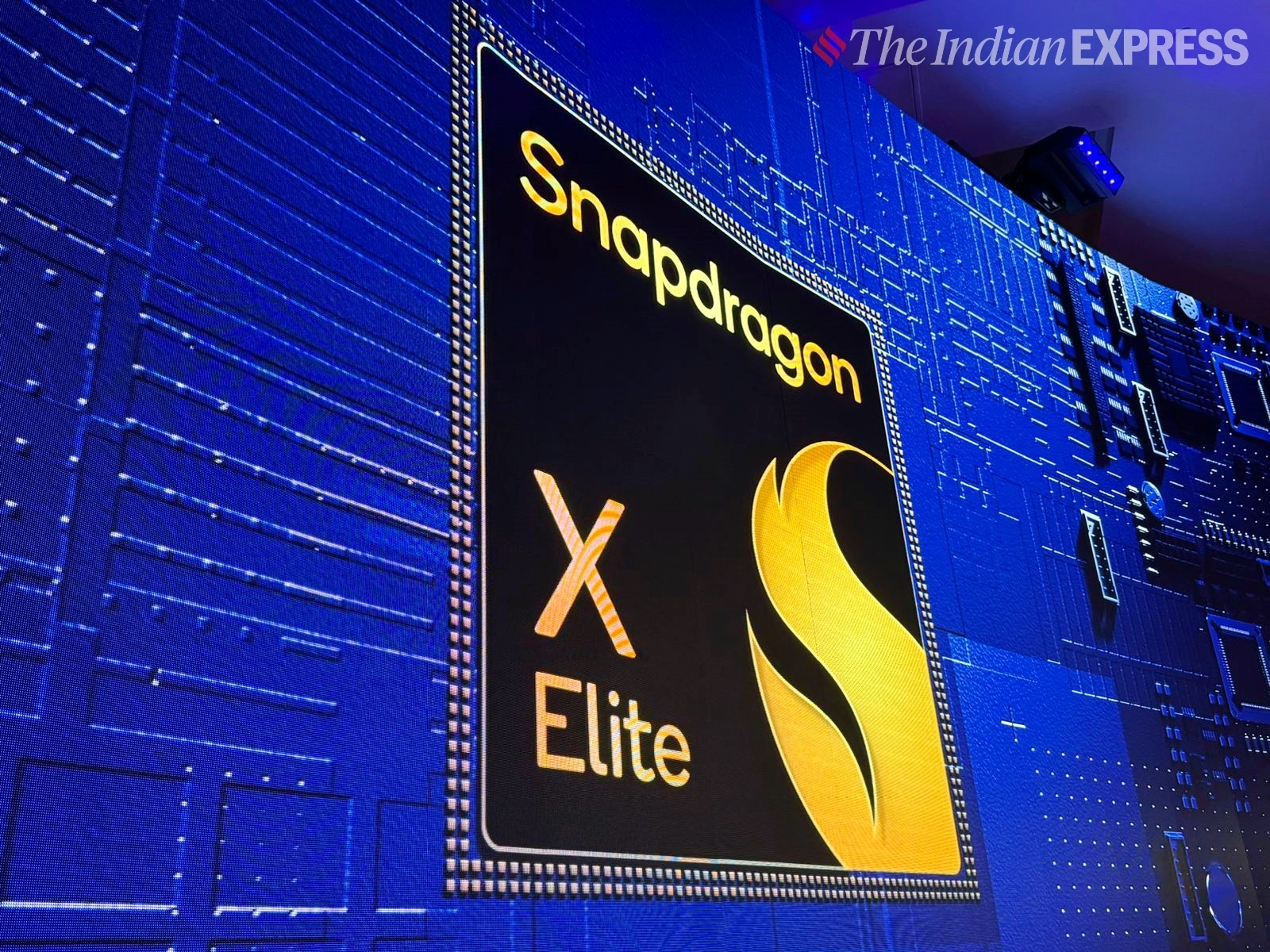“The device understands you, and you understand the device, creating a highly personalised machine.” Kedar Kondap, SVP & GM, Compute and Gaming at Qualcomm, explains how the company’s new Snapdragon X Elite chip for laptop PCs will bring a smart user experience to the forefront. So for Qualcomm, this new chip is not just a technical update, but an AI-led bid to establish an “emotional intelligence” in the device.
“I think the best AI experience is when the consumer doesn’t know the intelligence. That’s where the experience will start to evolve,” Kondap told indianexpress.com in an interview.

For years, PCs have become more powerful, but their user experience hasn’t changed significantly. In fact, outside of work, PCs have largely been replaced by smartphones, at least when it comes to staying connected or being entertained. The “waning consumer appeal” and declining demand from customers who work from home have contributed to a slump in the PC market.
But companies like Qualcomm think artificial intelligence can fix personal computers, and thus help revitalise PC sales. “I don’t think anybody has yet been able to fully understand the concurrencies which we are currently referring to AI today. Every user in any vertical, whether it’s manufacturing or operations, will want an AI-based PC, and we believe it’s going to drive significant differentiation,” says Kondap. “AI will become pervasive.”
 One of the key aspects of the Snapdragon X Elite is that the platform is designed to boost the power of PC-based artificial intelligence (AI) applications. (Image: Anuj Bhatia/The Indian Express)
One of the key aspects of the Snapdragon X Elite is that the platform is designed to boost the power of PC-based artificial intelligence (AI) applications. (Image: Anuj Bhatia/The Indian Express)
During its Snapdragon Summit this week in Maui, Hawaii, Qualcomm announced this completely redesigned processor for laptops called X Elite where AI processing runs locally on a device, rather than in the cloud. The chip supports generative AI models with over 13 billion parameters running entirely on the device.
One of the key aspects of the Snapdragon X Elite is that the platform is designed to boost the power of PC-based artificial intelligence (AI) applications, which could bring in a new type of user experience, something which is lacking on current PCs.
“There are applications that you are now seeing starting to take advantage of AI. I feel like it’s just the beginning. There’s more to come,” says Kondap.
Story continues below this ad
“I think app developers are going to innovate in a meaningful manner over the next several years to build applications that can take advantage of the heterogeneous architecture that X Elite supports, the powerful NPU that we’re talking about, as well as the powerful Qualcomm Oryon CPU cores,” he continued.
 Qualcomm showed AI applications like stable diffusion running on the laptop during the event. (Image: Anuj Bhatia/The Indian Express)
Qualcomm showed AI applications like stable diffusion running on the laptop during the event. (Image: Anuj Bhatia/The Indian Express)
During the demos, Qualcomm showed AI applications like stable diffusion which can generate images based on when you feed a few words and a large language model-based AI assistant tool all running completely on the laptop, without the need for the cloud. The demos were impressive, though it remains to be seen how fast the software ecosystem will evolve by taking advantage of AI capabilities.
For the past few years, Qualcomm has been producing Snapdragon chips for Windows PCs, but the performance of these chips has failed to challenge Intel and AMD chips, despite offering better battery life and improved connectivity. Many felt that Qualcomm-made chips were not designed for Windows-powered laptops. In fact, Qualcomm’s chips have been used in only a handful of PCs, which shows how OEMs have responded to ARM-based chips for laptop PCs. However, this may change with the Snapdragon X Elite, the first product from Qualcomm designed by the team acquired through the purchase of Nuvia in 2021 for $1.4 billion. This is the same company whose founders and employees were also involved in developing Apple’s A- and M-series Apple Silicon processors.
 The Oryon CPU cores promise high-performance computing on par with Intel and AMD. (Image: Anuj Bhatia/The Indian Express)
The Oryon CPU cores promise high-performance computing on par with Intel and AMD. (Image: Anuj Bhatia/The Indian Express)
The Oryon CPU cores, extensively discussed during Qualcomm’s keynote presentation at the Snapdragon Summit, promise high-performance computing on par with Intel and AMD, all while maintaining the power efficiency inherent in the ARM designs they are based on. The X Elite is a 12-core, 4 nm chip that will directly compete with Intel’s Core processors and AMD Ryzen chips in PCs. Qualcomm even compared its newest laptop processor to the Apple M2 processor, claiming to have the same performance in single-threaded workloads while using 30 per cent less power. If these numbers stand as Qualcomm claims, the company may have a real competitor to Intel, AMD, and even Apple for that matter. Experts are already waiting to see how Apple will respond to Qualcomm’s claims next week when the Cupertino giant is believed to announce new Macs with its M3-series chips.
Story continues below this ad
Kondap wasn’t ready to disclose more details about the chip, such as whether it would have multiple SKUs or the pricing of laptops powered by the X Elite. However, he did mention that PCs powered by the new processor are expected to be released by top companies like HP and Lenovo in mid-2024.
Certainly, the new platforms that Qualcomm announced for smartphones and laptops heavily rely on AI computing. However, Kondap says he doesn’t envision a time when smartphones and laptops will be merged into a single device. “They are two distinct devices, but at the same time, our legacy is ensuring that we prioritise power efficiency with respect to mobility,” he said.
The writer was in Maui, Hawaii, attending the Snapdragon Summit on the invite of Qualcomm India.



 One of the key aspects of the Snapdragon X Elite is that the platform is designed to boost the power of PC-based artificial intelligence (AI) applications. (Image: Anuj Bhatia/The Indian Express)
One of the key aspects of the Snapdragon X Elite is that the platform is designed to boost the power of PC-based artificial intelligence (AI) applications. (Image: Anuj Bhatia/The Indian Express) Qualcomm showed AI applications like stable diffusion running on the laptop during the event. (Image: Anuj Bhatia/The
Qualcomm showed AI applications like stable diffusion running on the laptop during the event. (Image: Anuj Bhatia/The  The Oryon CPU cores promise high-performance computing on par with Intel and AMD. (Image: Anuj Bhatia/The Indian Express)
The Oryon CPU cores promise high-performance computing on par with Intel and AMD. (Image: Anuj Bhatia/The Indian Express)





